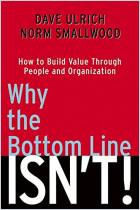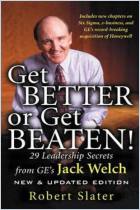加入 getAbstract 阅读摘要

加入 getAbstract 阅读摘要
Dave Ulrich, Steve Kerr and Ron Ashkenas
The GE Work-Out
How to Implement GE's Revolutionary Method for Busting Bureaucracy and Attacking Organizational Problems - Fast!
McGraw-Hill, 2002
看看什么内容?
General Electric used the Work-Out approach to solve problems, build teamwork and create accountability. Could you?
Recommendation
There’s no denying the effectiveness of the “Work-Out” system at General Electric (GE). This book is a straightforward and comprehensive introduction to what Work-Out means and how it helped GE achieve astonishing results under Jack Welch, who introduced it. This clear, well-organized book makes it possible for any executive or manager to apply at least some elements of the Work-Out program in any organizational context. getAbstract does caution you, however, that the Work-Out program as portrayed here demands a great deal of commitment and moral fortitude from leaders. Empowerment may be effective, but it is rarely comfortable for the powers that be. Just ask “Neutron Jack.”
Summary
About the Authors
Dave Ulrich, a University of Michigan School of Business professor, wrote Human Resource Champions, Results-Based Leadership and The HR Scorecard. Steve Kerr, chief learning officer and managing director of Goldman Sachs, is former vice president-leadership development and chief learning officer of General Electric. Ron Ashkenas is a managing partner in the Robert H. Schaffer & Associates consulting firm. He has written two other books about General Electric.































Comment on this summary